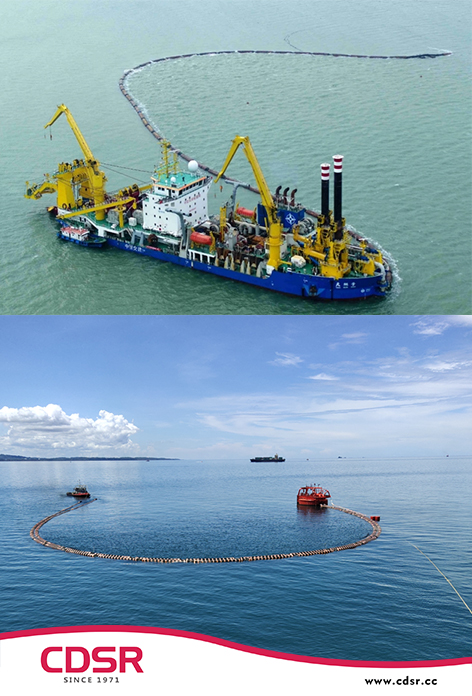પાઇપલાઇન્સ એ ઓફશોર તેલ અને ગેસ સંસાધનો અને ખનિજ સંસાધનોના ઉત્પાદન અને વિકાસ માટે "જીવનરેખા" ઉપકરણો છે. પરંપરાગત કઠોર પાઇપલાઇન ટેકનોલોજી પરિપક્વ થઈ ગઈ છે, પરંતુ વળાંક, કાટ સામે રક્ષણ, સ્થાપન અને બિછાવેલી ગતિમાં મર્યાદાઓએ તેના એકંદર ખર્ચમાં ઘણો વધારો કર્યો છે. કઠોર પાઇપલાઇન્સના ઉપયોગ દરમિયાન નીચેની પરિસ્થિતિઓ આવી શકે છે:
સુગમતાનો અભાવ: કઠોર પાઈપો, તેમના સ્થિર સ્વરૂપને કારણે, વાળવાની અથવા ખેંચવાની ક્ષમતાનો અભાવ ધરાવે છે, અને તેથી જમીનમાં ફેરફાર, તાપમાનમાં ફેરફાર અથવા ભૂકંપ જેવા બાહ્ય દળોના પ્રતિભાવમાં નબળી કામગીરી કરે છે, tતેના કારણે પાઇપ તૂટી શકે છે અથવા વિકૃત થઈ શકે છે.
તણાવ, એકાગ્રતા અને થાક પ્રત્યે સંવેદનશીલતા: જ્યારે કઠોર પાઈપો બાહ્ય ભારને આધિન હોય છે, ત્યારે તાણ શોષવાની અથવા વિખેરવાની ક્ષમતાનો અભાવ તણાવની સાંદ્રતા તરફ દોરી શકે છેચોક્કસવિસ્તારો. આ પાઇપને થાક નિષ્ફળતા માટે સંવેદનશીલ બનાવે છે, ખાસ કરીને જો તે વારંવાર કંપન અથવા આંચકાનો ભોગ બને છે.
કાટ: કઠોર પાઇપમાં નિષ્ફળતાનું એક સામાન્ય કારણ કાટ છે.એલાઇન્સ, ખાસ કરીને મેટાl પાઇપલાઇન્સસમય જતાં, ભેજ, રસાયણોના સંપર્કમાં અને અન્ય કાટ લાગતા પદાર્થોનું કારણ બની શકે છેપાઇપલાઇન્સબગડે છે, જેનાથી લીક થાય છે અને માળખાકીય નબળાઈ આવે છે.
નવા ઉકેલ તરીકે, લવચીકનળીઓhaveઓફશોર તેલ અને ગેસ સંસાધનો અને ખનિજ સંસાધનોના ઉત્પાદન અને વિકાસમાં મહત્વપૂર્ણ એપ્લિકેશન મૂલ્ય. તેના ફાયદા જેમ કે વળાંક, કાટ વિરોધી, સ્થાપન અને બિછાવેલી ગતિદૂર કરવુંપરંપરાગત સ્ટીલ પાઈપોની મર્યાદાઓ દૂર કરે છે, એકંદર ખર્ચ ઘટાડે છે અને વધુ કાર્યક્ષમ અને વિશ્વસનીય ઉકેલ પૂરો પાડે છે. ટેકનોલોજીના સતત વિકાસ સાથે, લવચીકનળીઓફશોર રિસોર્સ ડેવલપમેન્ટ ઉદ્યોગમાં વધુને વધુ મહત્વપૂર્ણ ભૂમિકા ભજવે છે.
લવચીક નળીઓના ફાયદા:
●જેમ કે trરમતગમત સામગ્રીવહે છે, પાઇપએલાઇનતાપમાન, દબાણ અને અન્ય પરિબળોના પ્રભાવ હેઠળ સિસ્ટમ વિકૃત અને વિસ્તૃત થશે. લવચીકનળીઓઆ વિકૃતિઓ અને થર્મલ વિસ્તરણને ખેંચીને, વાળીને, વગેરે દ્વારા વળતર આપી શકાય છે, જેથી પાઇપનું સામાન્ય સંચાલન સુનિશ્ચિત થાય.એલાઇનસિસ્ટમ.
● એફસુલભનળીદ્વારા ઉત્પન્ન થતા કંપન અને અવાજને ઘટાડી શકે છેપ્રવાહીપાઇપ સિસ્ટમમાં, ખાતરી કરો કેingપાઇપ અને આનુષંગિક સાધનોનું સામાન્ય સંચાલન.
● એફસુલભનળીઓ છેવસ્ત્રો-પ્રતિરોધક સ્થિતિસ્થાપક સામગ્રીથી બનેલું, અનેઆવરણનળીનુંઓઉચ્ચ બાહ્ય તાપમાનનો સામનો કરી શકે છે,લાંબા સમય સુધી યુવી સંપર્કમાં રહેવું, અને હલનચલન.
●લવચીકનળીs સરળતાથી કનેક્ટ અને ડિસ કરી શકાય છેજોડાયેલ, પાઇપ સિસ્ટમની જાળવણીને વધુ અનુકૂળ અને કાર્યક્ષમ બનાવે છે. લવચીકનળીઓhaveઉચ્ચ સુગમતા અને પ્લાસ્ટિસિટી, અને વિવિધ પાઇપિંગ સિસ્ટમ્સની કનેક્શન અને જાળવણી જરૂરિયાતોને અનુરૂપ થઈ શકે છે.

પાઇપલાઇન સિસ્ટમમાં લગાવવામાં આવતી લવચીક નળી પાઇપિંગ સિસ્ટમની સલામતી, સ્થિરતા અને જાળવણીમાં સુધારો કરી શકે છે, અને તે પાઇપલાઇન સિસ્ટમનો અનિવાર્ય ભાગ છે.
તારીખ: 20 સપ્ટેમ્બર 2023





 中文
中文